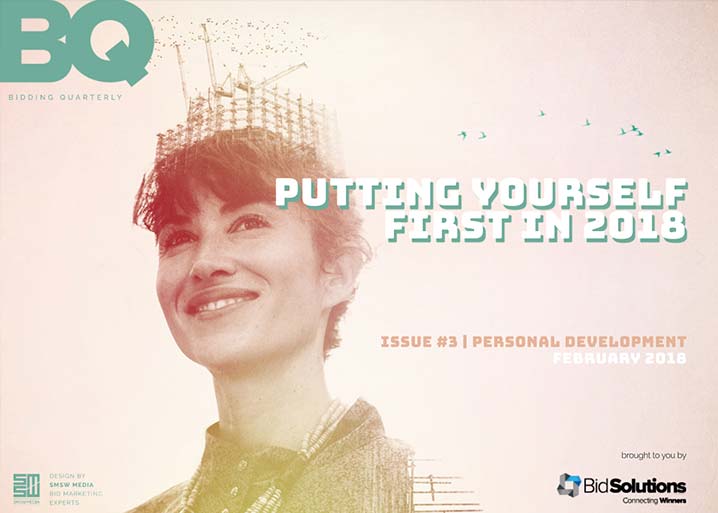Being asked to contribute for this article has made me reflect about my own personal development throughout my career. Each year, the process was pretty much the same. Stress about filling in as much as I could about how I had met (and exceeded!) my personal objectives. Think about next year’s too, if I had time. Have a cursory thought around whether I a) had a plan for my career, b) whether it had ever been articulated and c) whether it had really changed that much with what had happened in the last 12 months. Then came the part I really hated thinking about – personal development. I would count the number of lines I had to fill in for the template and try to come up with a plan. I picked the plan back up the next year to see whether I had by some miracle actually done anything remotely similar that I could tick.
My line manager discussions pretty much matched that process and it didn’t really change how senior I became but two turning points for me that made the difference – a mentor and a coach. I could spend the rest of the article just explaining the difference between the 2 (a common conundrum, I have since found) but suffice to say that if it wasn’t for 2 key individuals, I wouldn’t have had the career I did (and still do) and wouldn’t have developed in the way that I did. Both, unsurprisingly, are great ways to develop yourself.
Is it just unique to me? No, not at all. In 2017, I started working with a client undertaking career conversations with senior commercial leaders after they had been through quite an arduous assessment centre process. It is immaterial whether it is for commercial, procurement, sales or bid teams, I have been sad to discover that whether you are in public or private sector, there remains a bit of a void as to the importance of personal development.
There are definitely some key themes that have come out of this most recent work for me:
Firstly the general lack of awareness about the 70:20:10 principle. Wikipedia says it was created around the mid-late 1990s and if only I had had this for my own early career conversations. 70% of learning comes from on the job training, 20% from others and only 10% from formal learning.
70%: What projects or tasks can be done whilst undertaking your current role that can either build on your strengths or develop areas that need attention?
20%: How do you network? Do you attend seminars for continuous personal development? Do you need a coach to look at specific areas to work on? Do you need a mentor who can guide you through some of the political or cultural complexities of your organisation or to bounce off some career conversations with? How do your customers work? What do they think of your service? Can you sit with them for a day and gain a better understanding about how they work?
10%: What 1 or 2 pieces of formal training would really help you to either learn something new or to skills refresh. From a commercial/procurement perspective, that could be technical skills such as negotiation refresh, risk modelling, and financial analysis. It can also cover behavioural skills such as influencing skills, presenting with confidence skills. You’d be surprised about how many people still see personal development as being purely about what courses they can attend. I’ll state the obvious – it is only 10% out of 100%.
Secondly, personal development contemplation and discussions need to include thinking about your longer term career aspirations and actually looking at your current role profile. What should you be doing day to day? Are you doing it well enough? What parts of your role don’t you do – or don’t like doing – and can you improve on it? If you have a strength at something, can you share with others? Where would you like your career to develop – do you want promotion, flexible working hours, a career change, thinking of retirement? What timescales are you thinking of? So what do you need to do over the next 1, 3, 6 and 12 months to make sure you are going the right direction.
Thirdly, this isn’t just a one person activity. I am saddened but not surprised that there is quite a mix of support from line management at all levels. By buy-in and support I mean that’s both enough time and space to be allocated to the conversation with your line manager (mobiles and other distractions put away and clearly separating out the objectives conversations from the personal development chat) as well as testing, challenging and then supporting the agreed personal development plan. Give yourself time and space to reflect on your personal development needs and demand the same from your line manager to talk it through with them.
Lastly, don’t be disheartened that you have to come up with a whole list of things that you’ve never done before. In the conversations I have with these senior commercial leaders, you’d be surprised about how many of our suggestions in the career conversations they are already undertaking but don’t realise that actually it is classed as personal development. The biggest of these is networking and it actually becomes more important the more senior you become. It isn’t necessarily about just external networking, what opportunities are there to internally network too. Not only is it a great way to learn from others, it is a simple and fantastic way to promoting your own “brand” too.
In summary, it doesn’t matter what your role or career is in, it is so important to think about personal development. Spending the time thinking about – and doing – your own 70:20:10 personal development plan will reap its own rewards in the long term.
This article was written by Beth Wallace.

